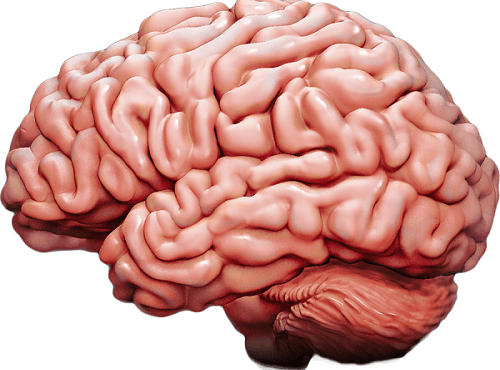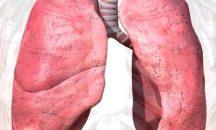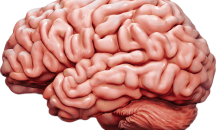Is there a prescription to reverse aging? -Part 1

The human brain begins to slowly decreasein size at age 25
Your hairline begins to recede, you can no longer keep count of the gray hair, your skin begins to sag, you can no longer fit into your clothes, but you can swear that you weigh the same on the scale.
Things may sometimes get worse; you just cannot remember where you place your keys and your “sweet after meals” is now a tray full of pills and you keep refilling these from your new-found recreational centre, which is your doctor’s office.
You may also belong to the team that wakes up every day with pain in your joints and getting out of bed can set off panic bells.
What if you retired from your job barely a year ago and you are currently in hospital for the second time with a broken arm?
Surely you will never agree with the phrase “age is just a number” because you seem to be “experiencing so many things that never happened to you in the past.”
This morning, I woke up more convinced than ever that we can prevent or reverse many of the changes associated with aging. Certainly, the downward spiral will continue if you do not do something positive to arrest and then reverse it.
These days whenever I spend time together with friends, the conversation will often be interspersed with greying, potbellies and health challenges. Consistently making our health a priority will go a long way to making things much better.
This month of April I have dedicated to discussing aging, its life-changing impact on our lives and what we can do.
I wish I had known these much earlier then I would not have to start a crush programme this week to make up for lost time.
You may be eager to get started too but no matter the state you find yourself in today, do not allow yourself to be sucked in by the “terrible toos” – too much, too hard, too fast, too soon – why?
The answer is simple you may either harm yourself or “burn-out” quickly. Both scenarios mean you will no longer continue with your newfound positive life.
The world is generally living longer but our “health span”, which is the time when we are actually fit and can enjoy life and not just hang onto it, is probably getting shorter.
Is it possible that much of the decline we experience is a result of our mindset and inactions? Maybe “we expect to fall apart so we allow ourselves to fall apart.”
Many of us ignore the “signs of aging” such as easy fatigueability and shortness of breath and instead focus on outward signs such as graying of our hair and a receding hairline; surely these are also important, but I bet it’s what is on the inside that really counts; your heart, your lungs, your brain, your kidneys and all the others that you cannot see.
I wish I could equate this to “don’t mind the body, mind the engine” but that would not be exactly true.
What happens to your brain, heart, lungs, muscle and bones as you keep celebrating birthdays? If you do not know your birthday or you have adopted a “f—ball age” you will still not be able to hide, just get proactive.
The brain
From age 25, the human brain begins to slowly decrease in size and that cannot be good news. Small in this scenario is certainly not better. As the brain shrinks, it becomes less efficient and your ability to reason, comprehend and retain information starts a slow difficult to detect downward ride. Who has seen my car key today, I thought I left it on the table?
What to do
Playing with balls (tennis balls I mean) may help your brain bounce back. Start with juggling three balls at a time. The good news is you don’t even need to get the juggling right; it is the effort at practising a new skill that matters. Remember not to be caught by the terrible toos. I plan to buy three balls today. Solve puzzles, read books and increase your physical activity.
The heart
In your mid-40s, your heart tends to grow smaller (excluding effects of a heart failure or muscle thickening from high blood pressure). This reduction in size means your heart no longer pumps blood as efficiently as it used to. This will force your heart to work harder putting it at risk of injury or disease.
What to do
The more time you spend moving the better. There is no dispute about it though, lace your boots and start moving. Depending on your level of fitness you may need to start slowly and build up momentum.
To be continued…
AS ALWAYS LAUGH OFTEN, ENSURE HYGIENE, WALK AND PRAY EVERYDAY AND REMEMBER IT’S A PRICELESS GIFT TO KNOW YOUR NUMBERS (blood sugar, blood pressure, blood cholesterol, BMI)
Dr. Kojo Cobba Essel
dressel@healthessentialsgh.com
*Dr. Essel is a medical doctor with a keen interest in Lifestyle medicine, he holds an MBA and is ISSA Specialist in exercise therapy, fitness nutrition and corrective exercise. He is the author of the award-winning book, ‘Unravelling The Essentials of Health & Wealth.’
Thought for the week –“A sedentary lifestyle – spending a lot of time seated at a desk, in a car, or in front of a television or computer monitor – increases your risk of death from heart disease even if you EXERCISE. Remember to take 2 minute heart health breaks from your desk or chair.”
Reference:
1. Men’s Health Magazine. May 2012
2. Stephen L. Kopecky M.D. – Cardiovascular Disease Specialist at Mayo Clinic
3. Mayo Clinic-Essential Heart Guide. 2012.
The human brain begins to slowly decreasein size at age 25
By Dr. Kojo Cobba Essel













